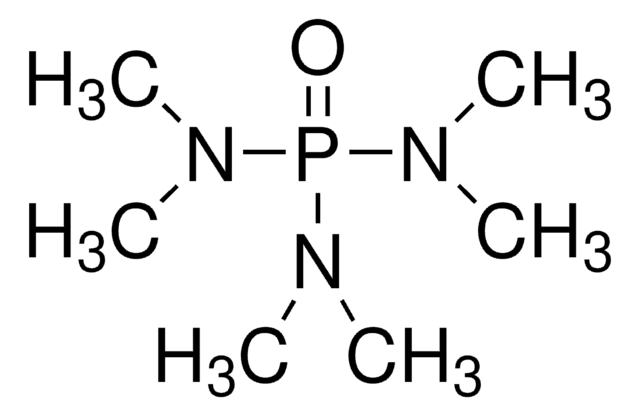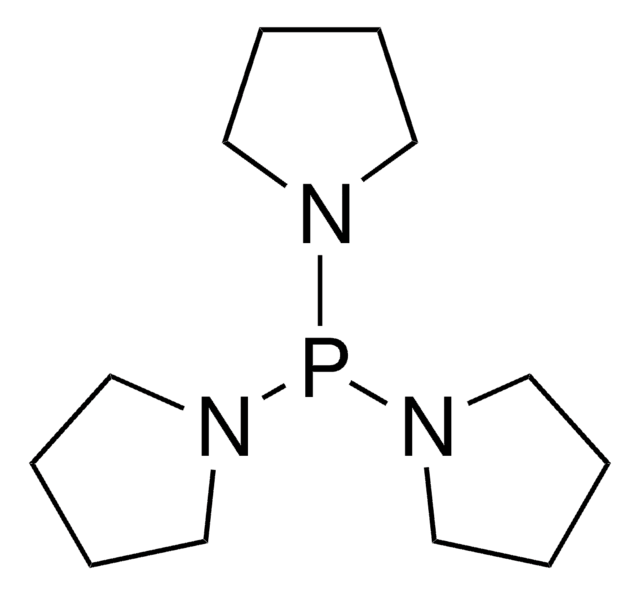253189
Tris(diethylamino)phosphine
97%
Synonym(s):
Hexaethyltriamidophosphite, Hexaethyltriaminophosphine, Phosphorous acid tris(diethylamide), Tris(N,N-diethylamino)phosphine, Tris(diethylamido)phosphine, Hexaethylphosphorous triamide
About This Item
Recommended Products
Quality Level
Assay
97%
form
liquid
reaction suitability
reaction type: Buchwald-Hartwig Cross Coupling Reaction
reaction type: Heck Reaction
reaction type: Hiyama Coupling
reaction type: Negishi Coupling
reaction type: Sonogashira Coupling
reaction type: Stille Coupling
reaction type: Suzuki-Miyaura Coupling
reagent type: ligand
refractive index
n20/D 1.475 (lit.)
bp
80-90 °C/10 mmHg (lit.)
density
0.903 g/mL at 25 °C (lit.)
functional group
phosphine
SMILES string
CCN(CC)P(N(CC)CC)N(CC)CC
InChI
1S/C12H30N3P/c1-7-13(8-2)16(14(9-3)10-4)15(11-5)12-6/h7-12H2,1-6H3
InChI key
FDIOSTIIZGWENY-UHFFFAOYSA-N
Looking for similar products? Visit Product Comparison Guide
Application
- 1,1′-Dialkylisoindigo derivatives by reacting with various 1-alkylisatins via deoxygenation reaction.
- 1-Aminomethylisatins by treating with isatin and primary and secondary amines.
It can also be used in the deoxygenation of some cyclic α-diketones using fullerene C60.
Signal Word
Warning
Hazard Statements
Precautionary Statements
Hazard Classifications
Eye Irrit. 2 - Flam. Liq. 3 - Skin Irrit. 2 - STOT SE 3
Target Organs
Respiratory system
Storage Class Code
3 - Flammable liquids
WGK
WGK 3
Flash Point(F)
138.2 °F - closed cup
Flash Point(C)
59 °C - closed cup
Personal Protective Equipment
Choose from one of the most recent versions:
Already Own This Product?
Find documentation for the products that you have recently purchased in the Document Library.
Customers Also Viewed
Our team of scientists has experience in all areas of research including Life Science, Material Science, Chemical Synthesis, Chromatography, Analytical and many others.
Contact Technical Service










